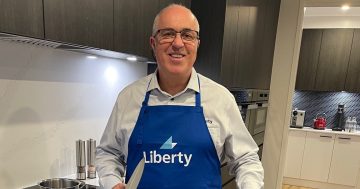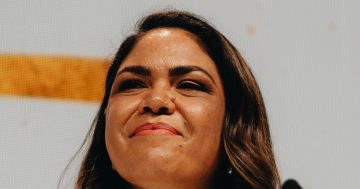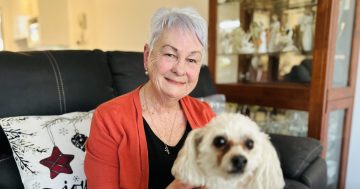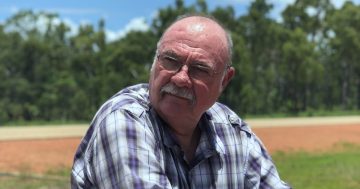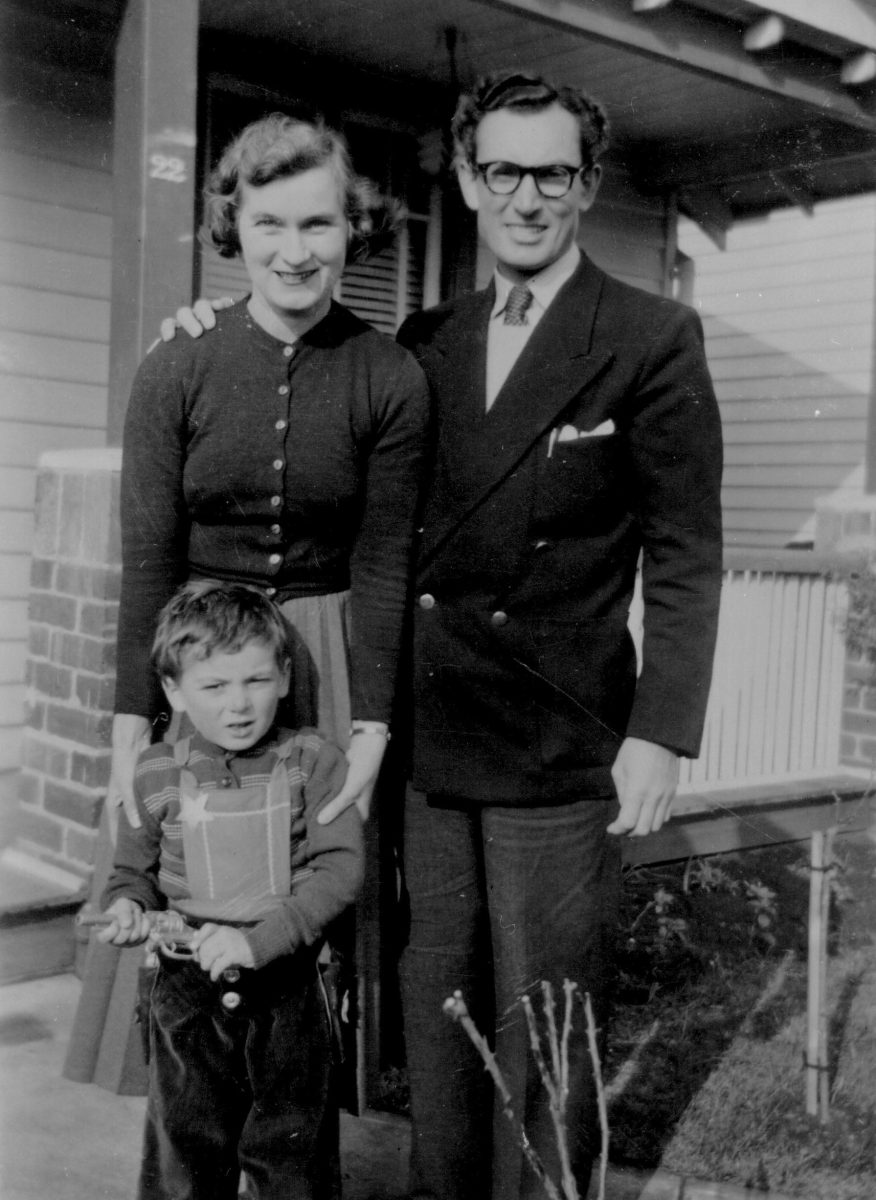
Loreto, Olive and Barry York fresh off the boat in Melbourne. Photo: Supplied.
A Canberra historian has celebrated the 70th anniversary of his family in Australia in a story that exemplifies the post-war contribution of migrants to this country.
Three-year-old Barry York accompanied his Maltese father Loreto and British mother Olive when they moved from London to Melbourne in 1954. Barry then settled in Canberra in the 1980s, with his parents following him here the next decade.
Through his work as a historian, Barry York has documented the stories of 500 migrants to Australia. He explains why the ACT has a large Maltese population.
“When Canberra was being built up after the war, they needed tradesmen and labourers to construct the new suburbs, such as Hughes and O’Connor,” he said.
“A few hundred Maltese came here in 1949 as tradesmen through [government assistance]. They were paid 10 pounds each to come.
“They lived in tents in Fairbairn, where the airport is now. They were shocked by both the cold winters and the dry heat of the summer.
“The government couldn’t get workers from other Australian states to come and live in tents and hostels … without the immigrants, it would’ve taken a lot longer to build Canberra.”
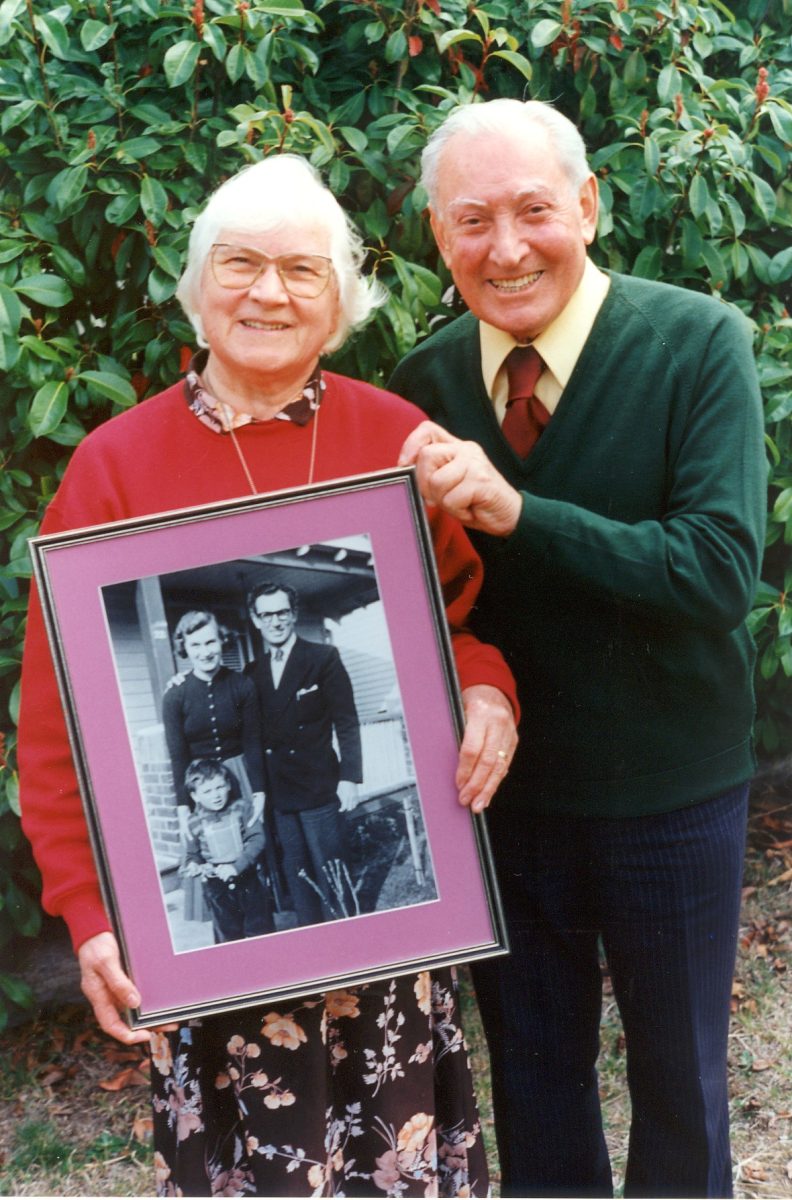
Olive and Loreto in 1996. Photo: Barry York.
Barry’s father, Loreto, was part of a group called the ‘Ten Pound Poms’, initially settling in Melbourne.
“My Maltese dad had been stationed in London after World War II with the Royal Air Force and married my Londoner mother in 1947,” he said.
“He experienced a bit of discrimination in London due to his surname, so he changed it from Meilak to York.
“He moved his family to Melbourne because his brother had settled there in 1924. He was disappointed with that city. He thought it would be a miniature version of London, but he found it backwards. Pubs closed at 6 pm and people would urinate in Flinders Street Station.”
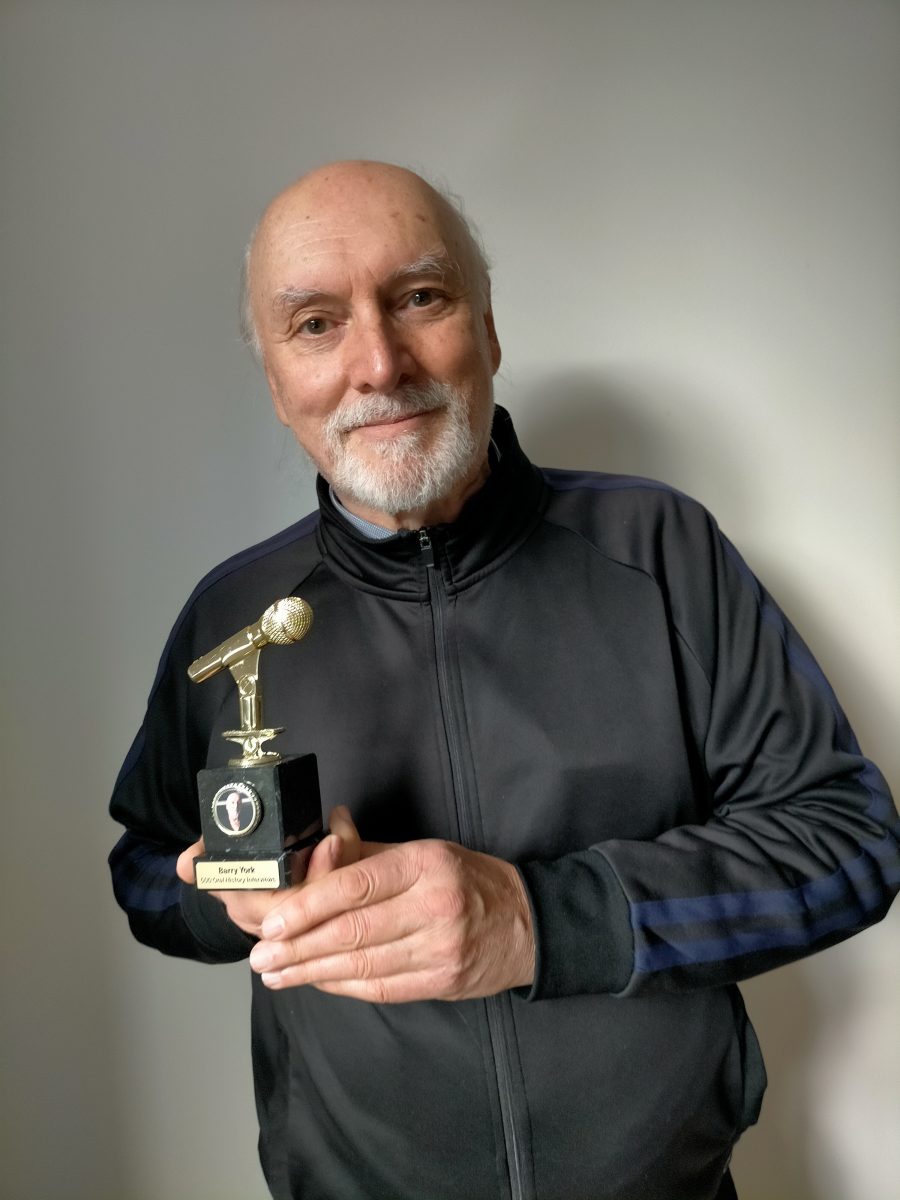
Barry York received a trophy for his 500 oral interviews. Photo: Supplied.
Loreto York got a job working in a small factory. A proud socialist, he tried to establish a union, though he was rebuffed by his conservative colleagues. He then moved to a bigger factory, Cyclax [cosmetics], where he was able to unionise the workforce before achieving further success in politics with the Labor Party.
“My Dad became the first non-Anglo mayor of Brunswick in 1972. He served as mayor while he kept working in the factory. They had said, ‘We can’t let Loreto become mayor, or the wogs will take over’, but he got there,” Barry said
“He could speak Arabic, Italian, Maltese and smatterings of Greek. That made him an asset to the Labor Party as most of the Labor councillors only spoke English.
“My mother Olive also contributed to Brunswick community life through her casual work as a journalist with the local newspaper … when I see Pauline Hanson try to sow division between people, I think back to Brunswick and how we all got on well. My street was a microcosm of multiculturalism. It was low socio-economic; we were all battling, but we all helped each other.”
Barry moved to Canberra in the 1980s, with his parents following him later to be close to grandchildren.
“My Dad loved Canberra for its open spaces, cleanliness and good roads … but he was a bit sceptical of public servants, coming from working-class Brunswick. He’d see someone walking in Civic with a briefcase and say it was probably empty – he was just posing.”
Olive passed away in 2003 and Loreto died in 2009.
“They were typical migrants – hard working, determined to make a better life than they had back in their homelands, pursuing the elusive butterfly known as happiness … I am very grateful to my parents for bringing me here. I’m glad to have grown up in Australia, especially in a place like the old Brunswick,” Barry said.
Original Article published by Oliver Jacques on Riotact.


